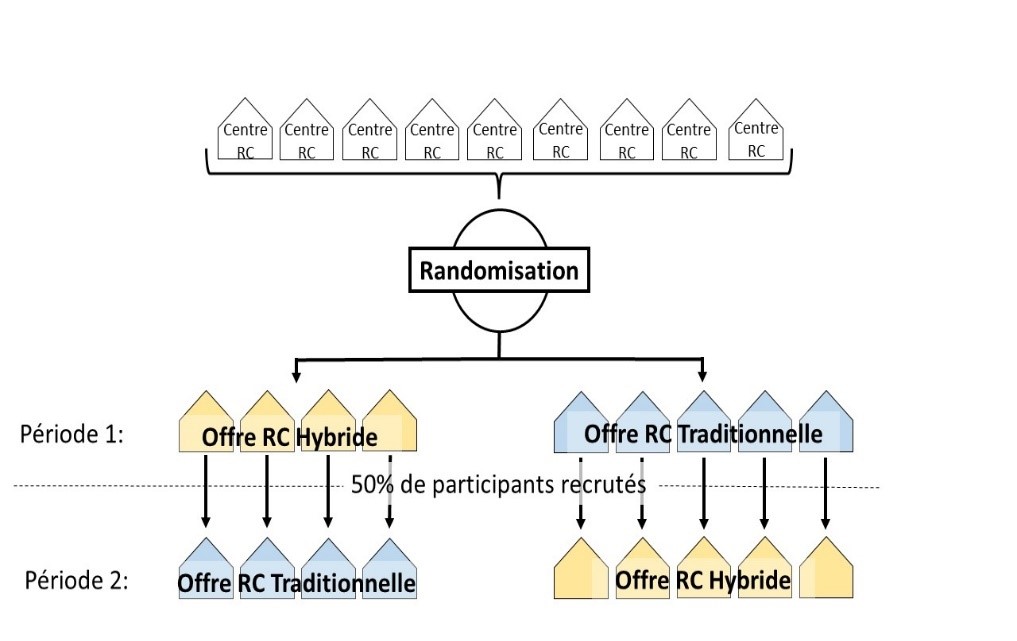APRES Study – Essai pragmatique contrôlé randomisé de promotion de l’Activité physique Post Réadaptation cardiaque en s’Exerçant chez Soi
Description
Cardiovascular diseases are among the most costly health problems, and represent one of the main reasons for hospitalization and death in Canada. These diseases affect relatively more Francophones living in minority language situations than Anglophones in Canada. The origin of these differences may lie in poorer lifestyle habits in French-speaking minority communities, where higher rates of physical inactivity have been recorded. Cardiac rehabilitation programs represent an effective intervention for reducing mortality rates, improving quality of life and functional capacity in people with cardiovascular disease. However, the physical activity level of people with cardiovascular disease tends to decrease once the cardiac rehabilitation program is completed. In fact, it has been shown that people tend to stop taking part in physical activity once supervision has ended. To ensure that the gains made during cardiac rehabilitation are preserved, it is essential to maintain physical activity. Incorporating teaching and follow-up of physical activity practice at home during the cardiac rehabilitation process could help sustain behavioral changes resulting from cardiac rehabilitation.
Objectives
Accordingly, this project will evaluate the effectiveness of a new “hybrid” cardiac rehabilitation model in French-speaking minority communities. Specifically, we will evaluate whether a new hybrid mode of cardiac rehabilitation involving sessions in a cardiac rehabilitation center as well as at home results in better maintenance of physical activity levels six months after intervention. We will also evaluate whether this model is linked to better quality of life, functional capacity and lower levels of anxiety and depression.
Research design for the present study: Nine cardiac rehabilitation centers are randomly assigned to 1) a group that begins by offering a hybrid program or 2) a group that begins by offering a traditional program. After recruiting 50% of their target participants, the centers change the type of program offered.

Each study participant will be assessed on three occasions: at admission to the cardiac rehabilitation program, after the 12-week cardiac rehabilitation program, and six months later.

Team
Principal Investigator: Mathieu Bélanger
Co-investigators: Saïd Mekari, Nicole Marquis, Monique Dufour Doiron, Pamela Tanguay
Funding Agency
This project is supported by the Canadian Institute of Health Research (CIHR)

